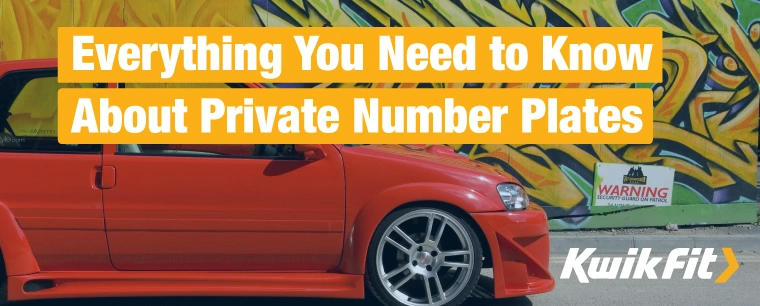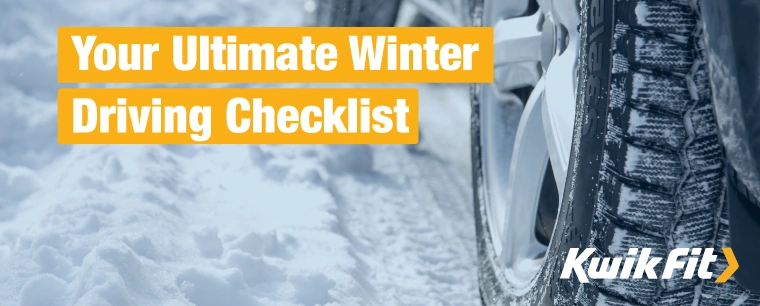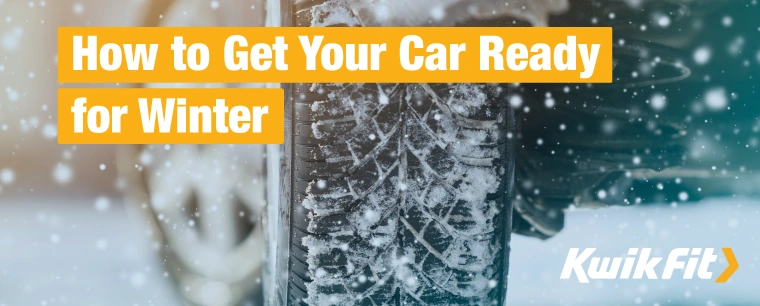Private Number Plates: Everything You Need to Know
Jack Dreyer | Wednesday 9th November 2022 12:30pm

Did you know that as of 2022, the UK’s private number plate industry was worth £2 billion? In recent years, a staggering number of drivers have decided to swap their regular registration plates for shiny, new personalised options. And we don’t blame them; personalised reg plates are a fun and interesting way for drivers to express their identity through their vehicle.
However, while personalised number plates are a surefire way to make your vehicle stand out, they can also land you in trouble if you don’t abide by the rules.
If you’re thinking about personalising your number plate any time soon, read on to find out all you’ll need to know to stay compliant.
How do personalised number plates work?
The concept of a personalised (or ‘private’) number plate is quite simple really. The idea behind them allows drivers to pay a bit more money to choose the letters and numbers that appear on their vehicle (within reason).
Drivers usually go for a slogan or initials that are meaningful to them. However, businesses have also been known to invest in this scheme for their fleet vehicles.
What kinds of number plates are available?
In the UK, we have four main types of registration plates: Current, Prefix, Suffix, and Dateless. We’ll run through them all for you below.
Current number plates
These are just your regular number plates, the ones that all road users have as standard. The current set-up has been in place since 2001 and consists of 7 characters such as ‘KY17 ABC’
- The first two letters indicate the region the vehicle was registered in.
- The two numbers after that show the vehicle’s ages.
- And the final three letters are randomised.
2. Prefix number plates
Travelling back in time a bit, this style of number plate is now outdated, being used in the UK from 1983 until it was replaced by the ‘Current’ system above in 2001. This method used a letter to indicate the age of a vehicle and was much more complex.
3. Suffix number plates
Going back even further brings you to suffix number plates, in use between 1963 and 1983. During this time, the letter after the three numbers would indicate the age of the vehicle. For example, suffix plates ending in B date from 1964.
4. Dateless number plates
Pre-1963, there wasn’t necessarily a system as such. There were just combinations of four numbers and three letters without indication of a vehicle’s age. These are the most desirable plates.

How much do private number plates cost?
The price of a private number plate varies hugely depending on:
- How rare the pattern on the plate is deemed to be
- Where the plate is purchased from.
Some personalised number plates are as cheap as £250. However, others can reach six figures for the right buyer. The most expensive number plate ever sold was priced at £101 million and was simply the number ‘1’. In the UK, however, the most expensive plate was sold in 2014 to the owner of a Ferrari 250 GTO for £518,480. The plate simply read ‘25 O’.
Generally speaking, you should expect to pay less for a private number plate being sold directly on the DVLA website than for a plate sold by brokers and at auction — which brings us to our next point.
Where can you buy private number plates?
You can buy a private number plate straight from the DVLA, through a broker, or in a private sale — the choice is yours.
Buying through the DVLA is probably your best bet if you are new to the private reg world since there is no middleman and their site has nearly 50 million private reg options up for sale.
To make it easier for you to find the reg pattern you want, you can use the DVLA search tool to narrow down your options. Aside from this, the DVLA also holds auctions throughout the year where a series of private registration plates are auctioned off to the highest bidder. Keep an eye out for these.
Brokers refer to salespeople who trade in private plates. Even though the DVLA has plenty of options, you still might not find what you’re looking for on there. So, it is worth checking the broker options if you’re after something specific.
The last option is to search through the adverts in car magazines where people will be trying to sell their registration plates privately. This is likely to be the most expensive option, mind, as these plates are often rare or collectable.
Buying private number plates and the law
Although it may seem easy from the outside, the process of paying for and displaying your private number plate is not always straightforward.
Regardless of where you've purchased it from, after buying your private number plate, you should receive a V750 from the DVLA — this is your certificate of entitlement and is what allows you to put the plate on your vehicle legally.
Although many drivers think buying a plate is something physical, you are only actually buying the rights to the figures on the plate. This is a common misconception. Instead of waiting for a number plate through the letterbox, then, you have to go to a registered number plate supplier to get the plate made.
You’ll need to bring the following things with you:
A valid form of ID (preferable a driving licence and/or passport)
The V750
When you buy a private number plate, the original plates for your car will be deactivated by the DVLA straight away.

Private number plate rules
The government has a strict set of rules that those buying, selling, and displaying private registration plates must follow. We’ve summarised them for you here.
Private number plates must:
- Be made from reflective material as regular plates are.
- Display black characters on a white background on the front plate and black characters on a yellow background on the rear plate.
Private number plates must not:
- Have a background pattern
- Have altered font or spacing
- Have an incorrect age or make your vehicle appear younger.
The penalty for displaying incorrect or inappropriate plates is a fine of up to £1,000 and an MOT failure. Private registration plates also can affect your insurance if you forget to inform your insurer of your upgrade — so watch out for that.
Can I transfer my private number plate?
If you already have a private number plate but want to buy a new car, you might want to transfer it to that new vehicle. This is very possible, but for a small fee of £80.00 to the DVLA.
Car accessory questions? Talk to us
If you have any questions about plates or any other car parts (such as windshield wipers, tyres, and brakes) call your local Kwik Fit centre and we’d be happy to help you.
Alternatively, for more information about vehicle handling, legality, and tips, browse through the rest of the articles on our blog.
Any facts, figures and prices shown in our blog articles are correct at time of publication.
Featured Articles
Is Your Car Battery Ready for Winter?
Monday 11th November 2024
Is the UK on the verge of ‘the coldest winter for 50 years?’ Even if El Niño doesn't hit the UK this winter, reduce the risk of a winter breakdown by making sure your car battery is winter-ready.
Your Ultimate Winter Driving Checklist
Monday 31st October 2022
Driving in the colder months presents many challenges. Breakdowns are far more common in winter, so make sure you’re prepared with these essentials.
How to Get Your Car Ready for Winter
Wednesday 28th September 2022
Winter can be a harsh season for your car but planning ahead by carrying out some basic maintenance and packing some essential kit should help you avoid a winter breakdown.







